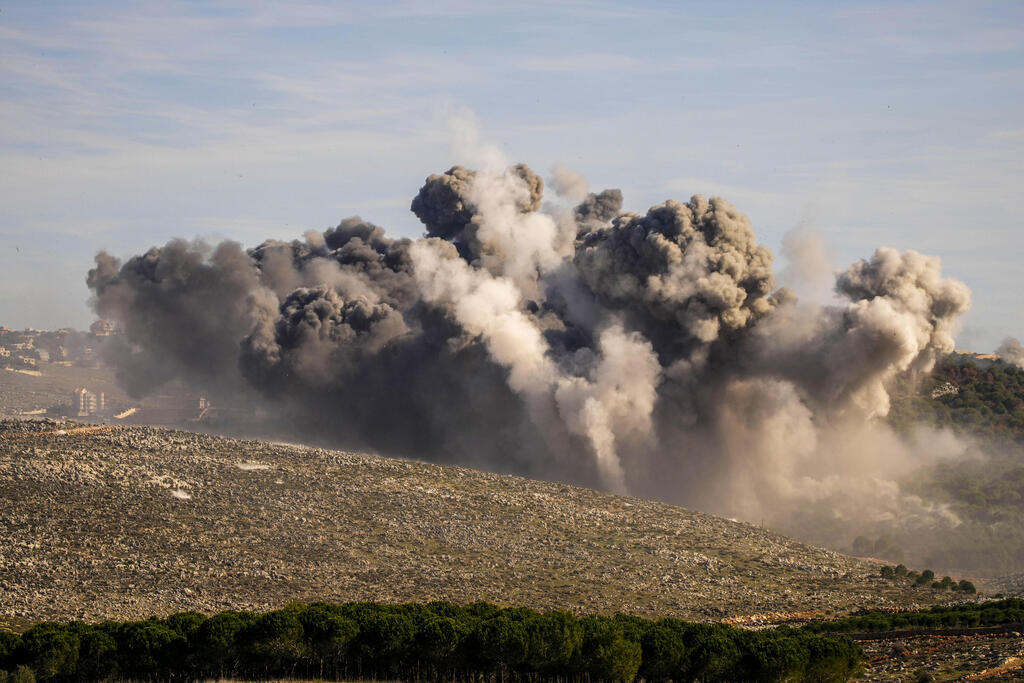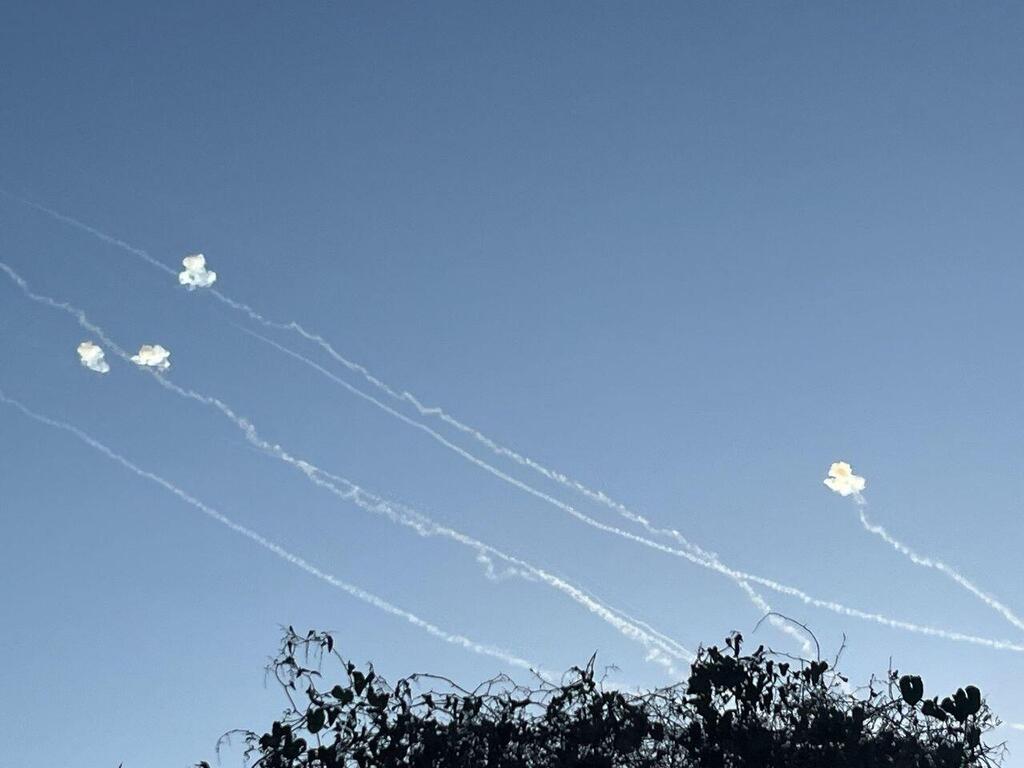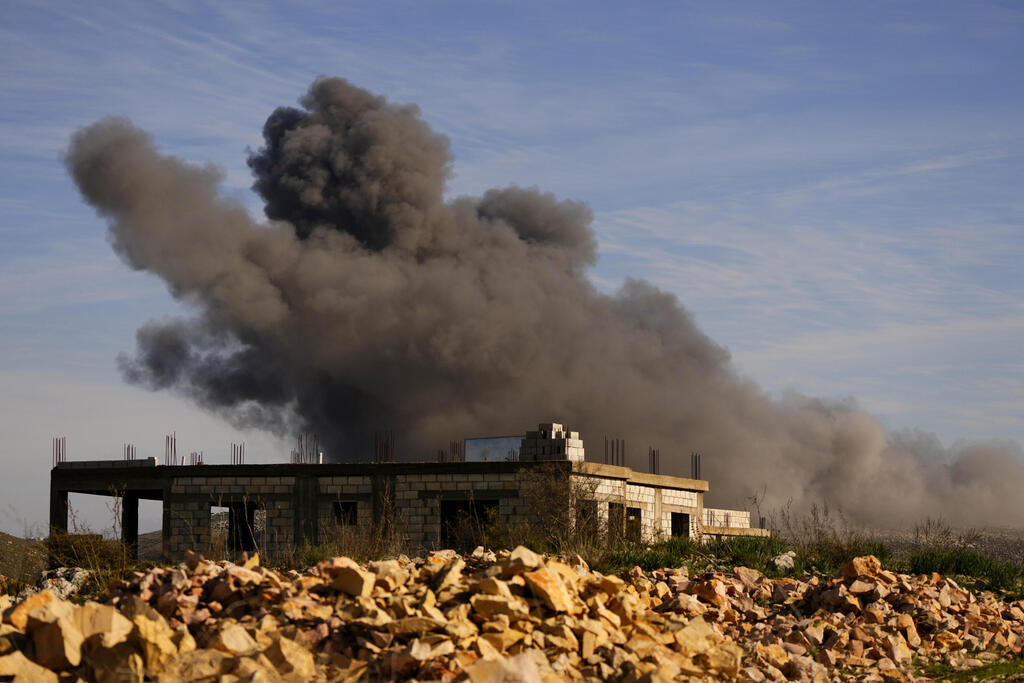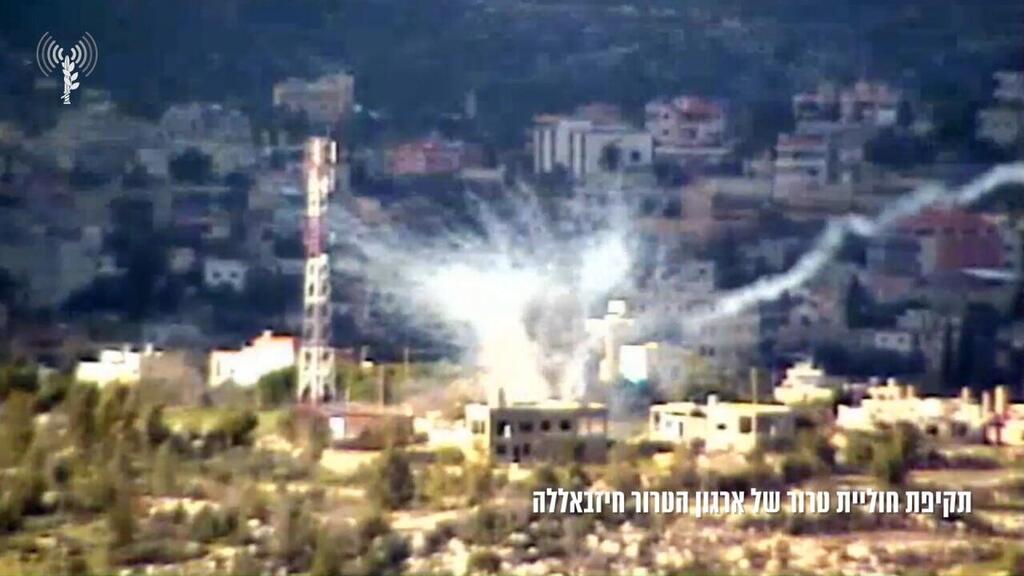Getting your Trinity Audio player ready...
The Hezbollah-affiliated Lebanese newspaper Al Akhbar published on Wednesday new details about behind-the-scenes negotiations, led by attempting senior Biden adviser Amos Hochstein, France and other Western actors, to reach an agreement to prevent the expansion of the Israel-Hamass war to the northern front.
More stories:
The report glosses over Israel's demand for Hezbollah to be pushed away from southern Lebanon beyond the Litani River and discusses four central points of contention.
According to sources familiar with the details of the discussions, the first point of contention is Lebanon's claim to ownership of point "B1", located in Rosh Hanikra (Naqoura), which is considered the starting point for demarcating the terrestrial borders between the countries.
The second issue discussed in the negotiations is an attempt to reach a compromise on the "13 points" along the border between the states, known as the "Blue Line," which Lebanon objects to and is not willing to accept in its current state.
The third point of contention is Lebanon's demand for Israel to withdraw from Ghajar, an Alawite-Arab village in the Golan Heights foothills. The village was a bone of contention before October 7, often discussed as a potential trigger for war on the northern border.
At the heart of Hezbollah's struggle is the claim of Israeli takeover over the northern area of the village.
The fourth issue raised in the discussions is Lebanon's demand for an Israeli withdrawal from the Mount Dov region, also known as the Shebaa Farms, transferring it to international control.
Point B1 holds geographic and military importance for both sides, as it is located on high terrain overlooking extensive areas, especially on the Israeli side, and offers a view of Haifa.
According to Lebanon, Jerusalem is unwilling to cede this territory due to its sensitive location and geographic significance. B1 represents the last border point in the terrestrial connection between the countries in the western Mediterranean sector.
Beirut claims this point has belonged to its territory since the 1923 Newcombe-Paulet Agreement, also known as the Franco-British Border Agreement, and demands sovereignty over it.
Additionally, from this point, the maritime boundary between the countries extends, with the dispute being over the angle from which the line emanates from B1 into the maritime area.
Hochstein believes that completing both maritime and terrestrial demarcation will be "the realistic solution that meets all requirements for resolving the conflict."
According to sources, Hochstein's approach is one of the diplomatic solutions discussed by Israeli officials, independent of the official Lebanese stance or Hezbollah's position.
A potential agreement on these points is complicated, given Lebanon's ongoing political turmoil. The country has been without a president for over a year and essentially lacks political leadership, as the current interim government led by Najib Mikati consists of temporary appointments.
Additionally, the country is grappling with an unprecedented economic crisis and a loss of public trust in the government due to widespread corruption at all levels. The situation is further exacerbated by the large influx of Syrian refugees fleeing the country’s civil war.
Moreover, the army commander is soon to end his tenure, with efforts underway to extend it to avoid creating a vacuum in another critical area.
On Tuesday, Lebanese Parliament Speaker Nabih Berri said "Lebanon has never faced a stage as perilous as it is today on multiple fronts: the vacuum in the presidency, the economic crisis, the worsening Syrian refugee crisis, Israeli strikes in the Gaza Strip and southern Lebanon, and harm to civilians and journalists."
Additionally, he referred to the recent Israeli attacks and stated, "The situation requires everyone to bear national responsibility and to hasten the election of a president."
For these reasons, among others, several Western countries, led by France and the U.S., are deeply intervening in Lebanon's recent affairs in an attempt to prevent its collapse, which could potentially lead to war.
However, the fact that the ongoing discussions overlook Israel's demand to remove the terrorist organization beyond the Litani River suggests that resolving these issues does not guarantee preventing further escalation.
The report highlights a major obstacle: Hezbollah's refusal to negotiate a solution independently from the Gaza situation, demanding no cease-fire in southern Lebanon until "the aggression in Gaza ceases." Thus, despite mediator efforts, realistically actualizing talks and reaching an agreement appears unfeasible at present.






